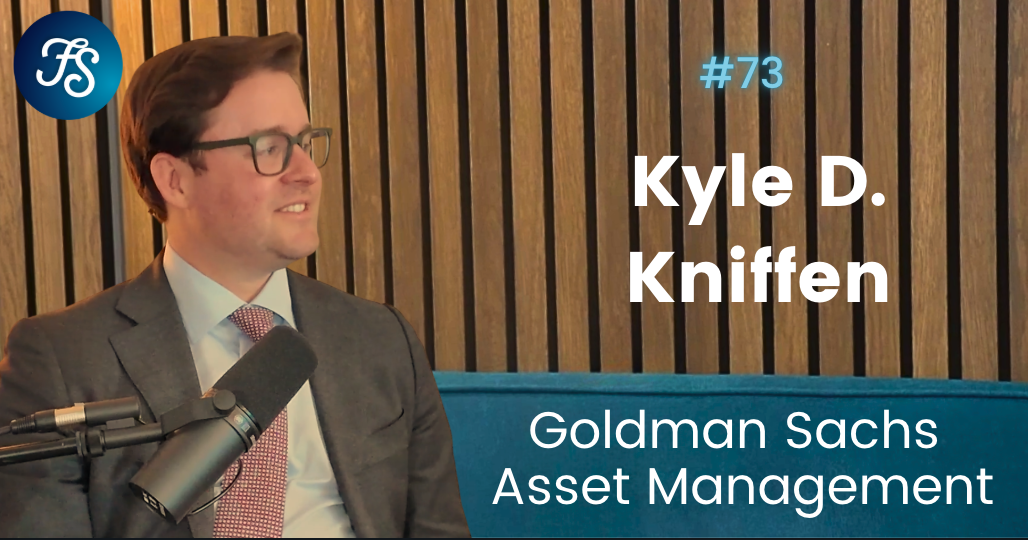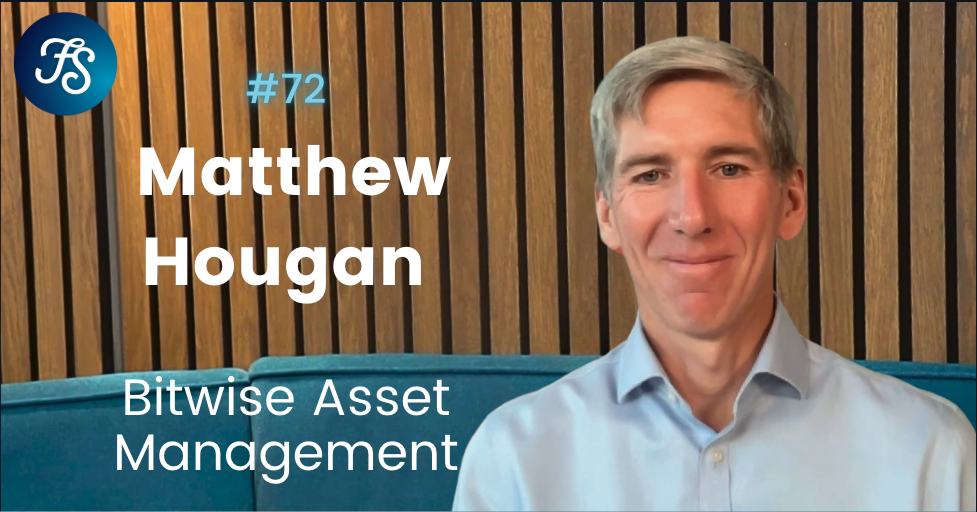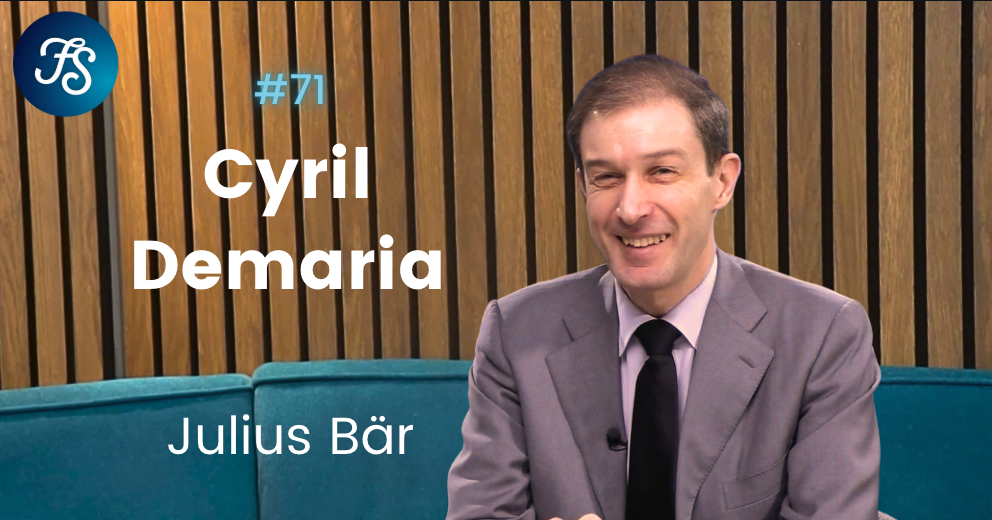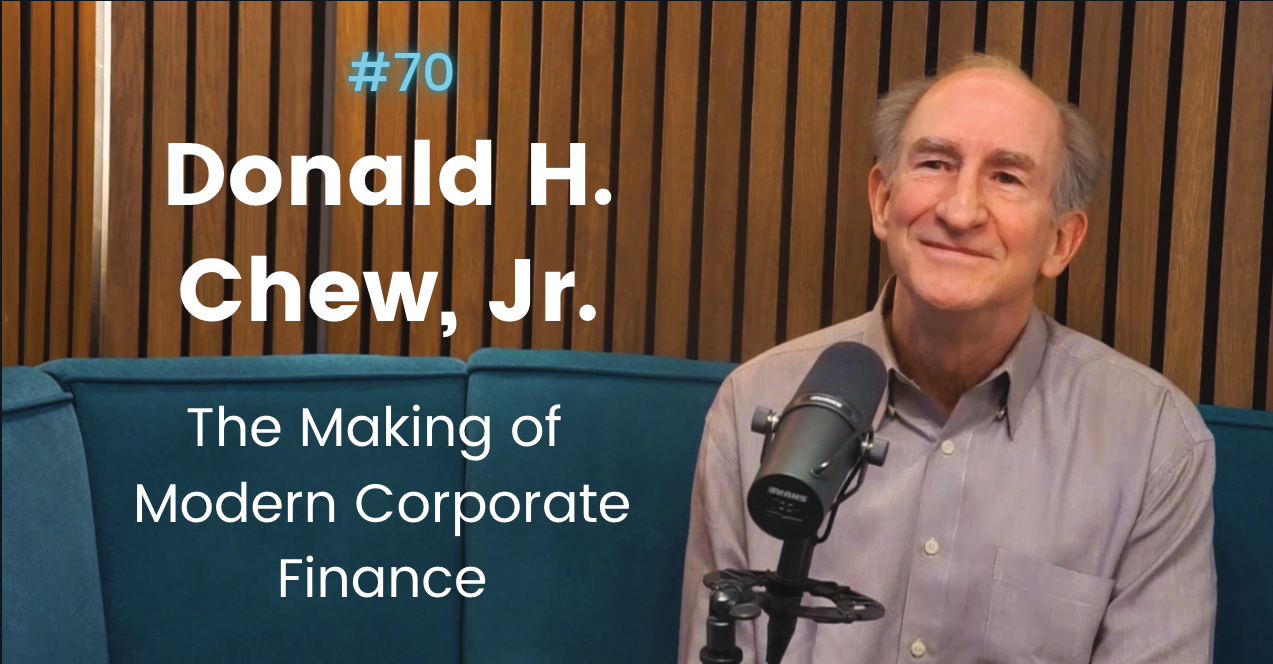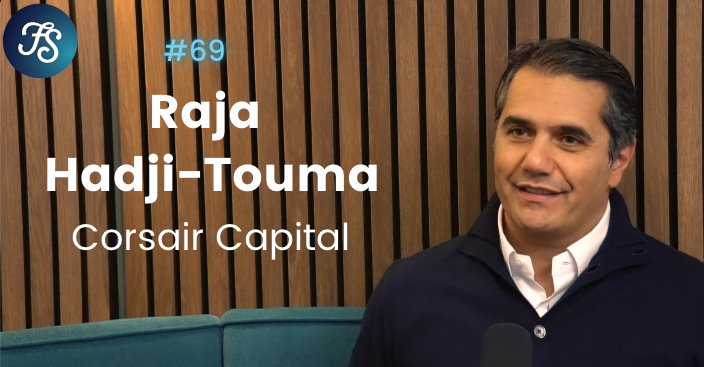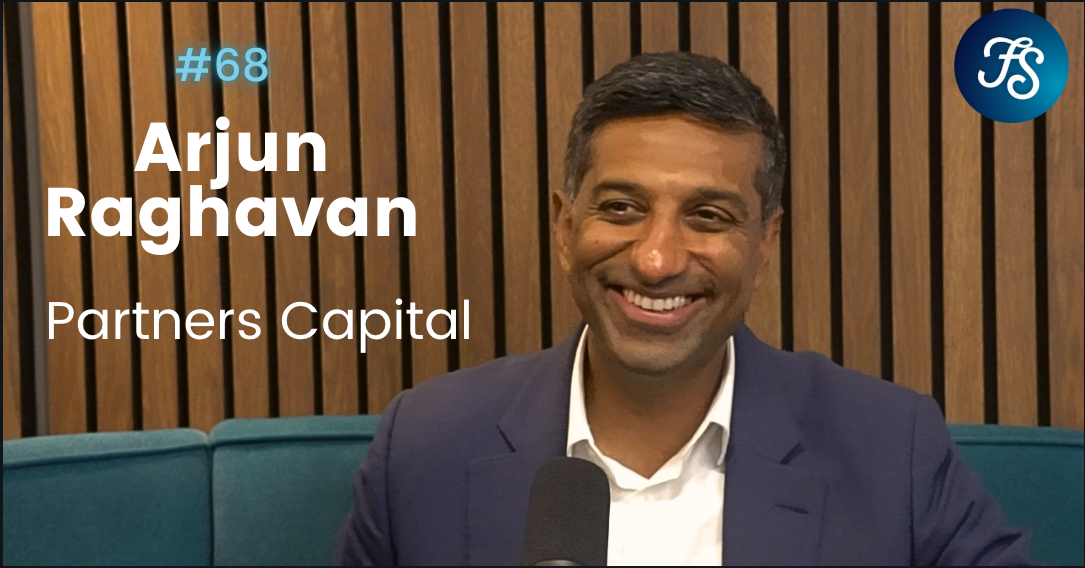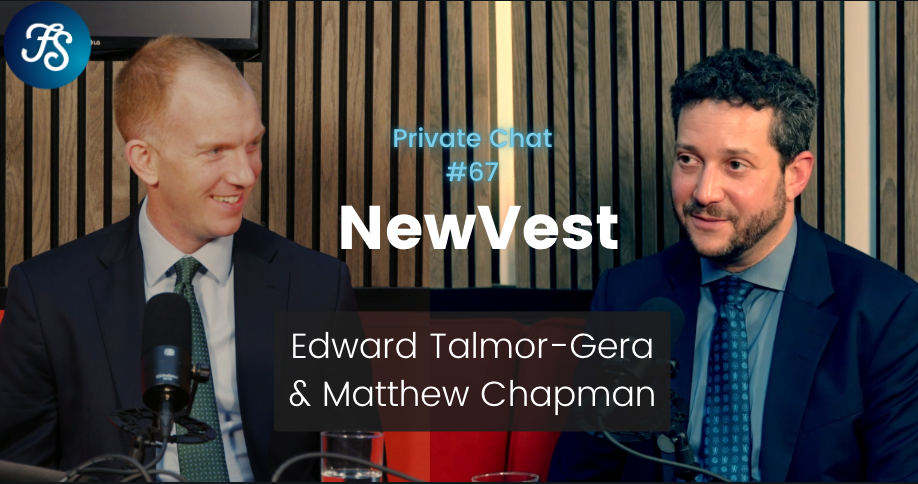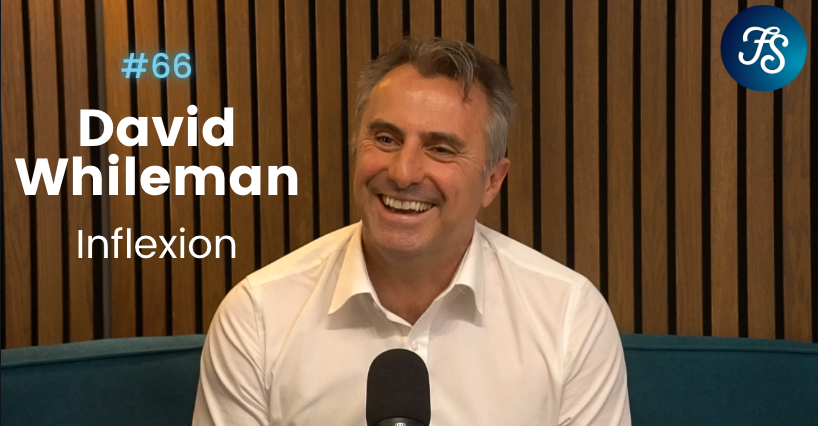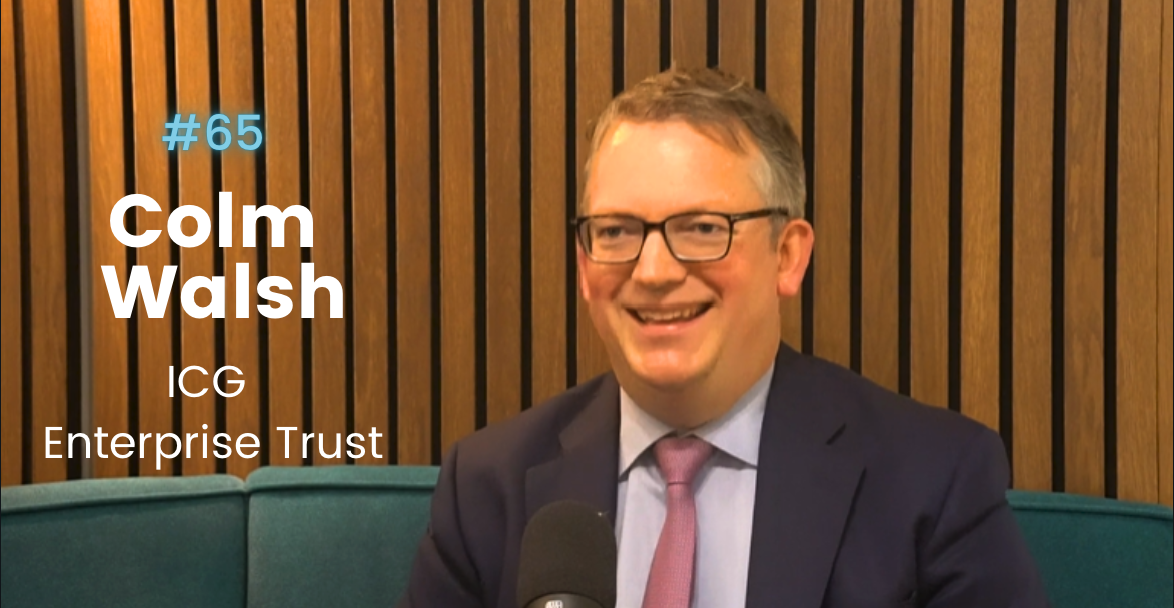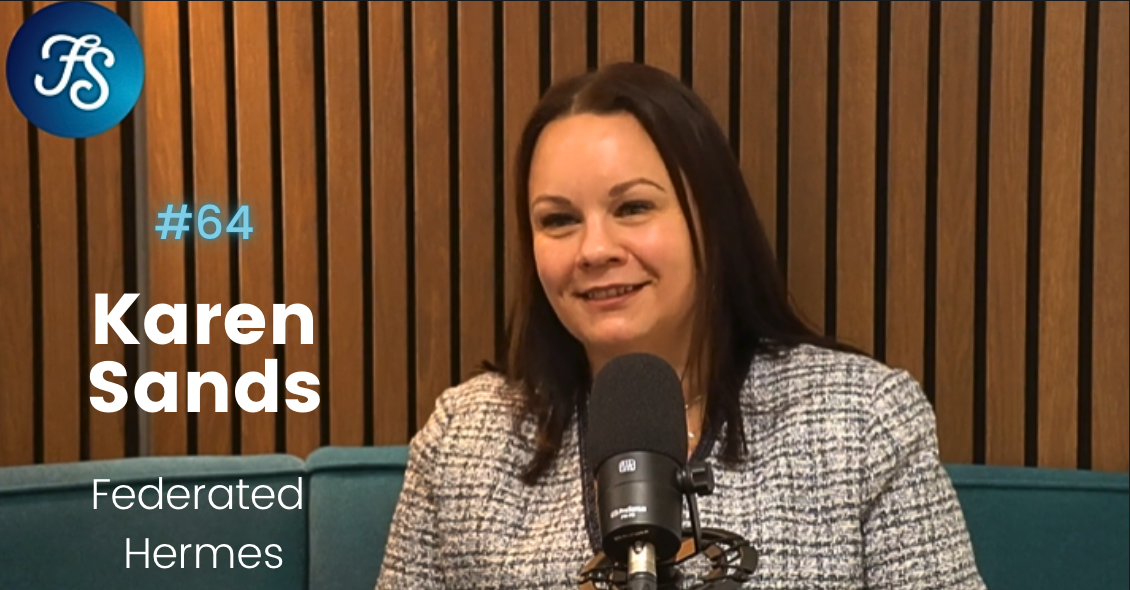How Goldman channels private markets to wealth | Kyle D Kniffen | Ep 73
In this Fund Shack episode, recorded at SuperReturn in Berlin, Ross Butler talks with Kyle D. Kniffen, Managing Director and Global Head of Alternatives for Third Party Wealth at Goldman Sachs Asset Management.
With over $500 billion in alternative assets under management and nearly four decades of experience, Kyle discusses the firm’s expansive platform, which spans direct investing and open-architecture manager selection across private equity, private credit, infrastructure, hedge funds, and more. This dual capability allows Goldman Sachs to provide flexible, multi-asset solutions tailored to wealth intermediaries seeking access to institutional-grade strategies.
Private Markets Are Now Mainstream – Even for Wealth
Kyle outlines the structural changes that have brought private markets to the centre of modern portfolio construction. The number of public companies has declined sharply, while private companies are staying private longer. Innovation in sectors like healthcare and AI increasingly happens outside public markets, making private equity and private credit essential exposures.
Goldman Sachs is responding to this shift with innovative fund structures that reduce complexity and broaden access.
Why Wealth Clients Are Underallocated – And How That Changes
Kyle estimates that global individual investors hold just 5% of their portfolios in alternatives, versus 20-30% for institutions. The education gap is significant, and Goldman Sachs is investing heavily in curriculum-like frameworks to support wealth managers and their clients through this transition.
Evergreen Alternatives: A New Era of Product Design
Kyle explores the trade-offs between traditional drawdown vehicles and new evergreen formats. While evergreen funds offer reduced complexity and optional liquidity, they introduce duration management challenges. Goldman mitigates this by integrating secondary strategies and maintaining a high bar for product design.
The discussion also highlights how private credit’s liquidity characteristics make it especially well-suited to evergreen formats. However, Goldman applies the same innovation to private equity, infrastructure, and real assets, combining directs and secondaries to reduce duration risk while preserving exposure.
Risk, Returns, and Manager Alignment
Risk management remains a priority, with diversification across and within asset classes. Kyle stresses alignment: Goldman Sachs’ own balance sheet and employee capital are significantly invested alongside clients. The firm takes transparency and reporting seriously, delivering post-sale support that includes events, frequent updates, and tailored communications.
Private Wealth Is Still Early in the Journey
According to Kyle, private wealth is at the earliest stage of its alternatives adoption curve. That presents an enormous opportunity for managers who can deliver not just investment performance, but a high standard of care, education, and partnership. As alternative investments become more foundational to long-term portfolio outcomes, Goldman Sachs is positioning itself as a trusted guide through the complexity.
———————————————————————
Thank you to our episode partner, Edelman Smithfield, a specialist Public Relations and Communications consultancy for the financial markets. Their deep expertise in Private Capital spans fundraising, portfolio company communications, strategic positioning, and reputation management.
Learn more at www.edelmansmithfield.com
———————————————————————
Subscribe now to unlock expert interviews!
LinkedIn Spotify Apple Podcasts YouTube Google Podcasts Amazon Music PlayerFM
Contact Information:
About Fund Shack:
Fund Shack is a private equity podcast and global media channel for alternative investment professionals. Fund Shack is produced by Linear B Group.
Contact:
Katie Mitchell
Email: katie@linearb.media
Company: Linear B Group
Hashtags: #PrivateMarkets #PrivateEquity #PrivateCredit #EvergreenFunds #WealthManagement #GoldmanSachs #AlternativeInvestments #PortfolioConstruction #FundShackPodcast #SuperReturn #Secondaries #InvestorEducation
Subscribe Now on your preferred platform to gain expert insights into private capital.
- LinkedIn: Fund Shack LinkedIn
- Spotify: Fund Shack on Spotify
- Apple Podcasts: Fund Shack on Apple Podcasts
- YouTube: Fund Shack on YouTube
- Amazon Music: Fund Shack on Amazon Music
- Audible: Fund Shack on Audible
Contact Information: About Fund Shack: Fund Shack is a private equity podcast and digital media channel for alternative investment professionals. Fund Shack is produced by Linear B Group Limited.
